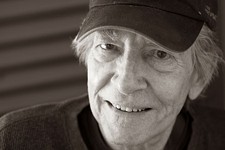Book Reviews
Southerners, Strange Foreigners, and Unabashed Perverts
By Clay Smith, Fri., June 2, 2000

The Cabal and Other Stories
by Ellen GilchristLittle, Brown, and Co., 276 pp., $24.95
In The Cabal, Ellen Gilchrist's new novella, Caroline Jones is a poet teaching at Yale who moves to California to "whore for the movies." She hates herself for doing it and returns to the South, where she's from, to teach Shakespeare and poetry to college students in Jackson, Mississippi. "I'll teach as hard as I can," she decides. "I'll teach the dumb ones and the smart ones." But Gilchrist has always been keenly attuned to life's tendency to interfere with our noblest intentions, so Caroline doesn't get to embark on her mission without some stoppage. Before classes even begin, Jim Jaspers, the most sought-after psychiatrist in Jackson, goes crazy at a funeral wake and starts divulging his powerful patients' secrets all over town. The cabal -- the intimate network of his patients -- does not like that. Caroline has friends in the cabal, and at first she is mystified by their terror.
Gilchrist's detailed eye catches her characters just as they are about to unravel, or sometimes as they consider unraveling. Then she forces them to put themselves back together again. It's great fun. In "Hearts of Dixie," Sally Shelton is a tennis pro and "professional typist" who sort of stumbles across 36 gold coins that may or may not have been bequeathed to her: "I want to keep these Kruggerands. I can't help it. Just because I'm a Presbyterian doesn't mean I'm perfect." "The Big Cleanup" is another account of Miss Crystal by Traceleen, her wise and droll maid and friend. Miss Crystal thought that cleaning out all the drawers in the house would be a chore, but there are lots of artifacts in Miss Crystal's drawers, so the task is something more than a chore. "All the memories of when her son, King, was growing dope, memories of her own drunken nights before she got on Antabuse and learned to do yoga instead of drinking toddies, all the poets who used to hang out in the den when Francis Alter was alive, all the antiwar people ... all the parties and fried chicken," are in those drawers. In the stories that immediately follow The Cabal, we find out more about Caroline's California mistake and the woman whose funeral is the impetus for that psychiatrist's descent. The things that happen to the wizened and observant women in this collection could take place anywhere, but these stories are indelibly Southern. There are echoes here of the bloated, musty South we used to hear about, but Gilchrist doesn't cloak her tales in that sticky syrup of nostalgia and regret. Her Southerners have places to go and people to see, but she slows them down for our pleasure and their own enlightenment.








